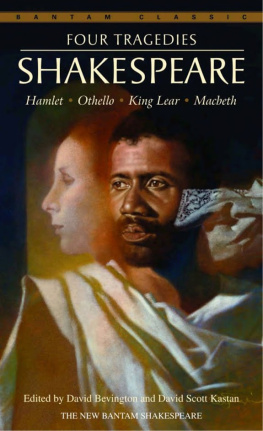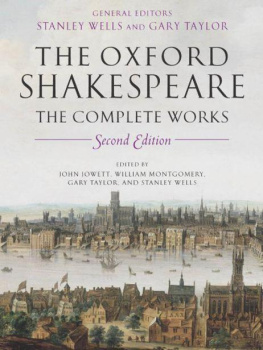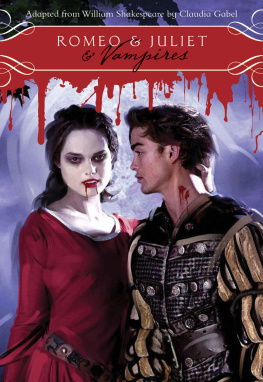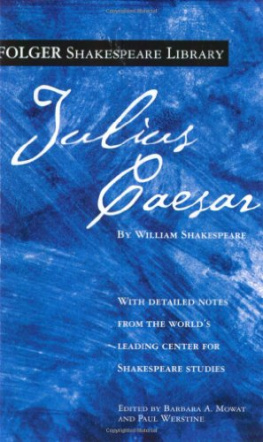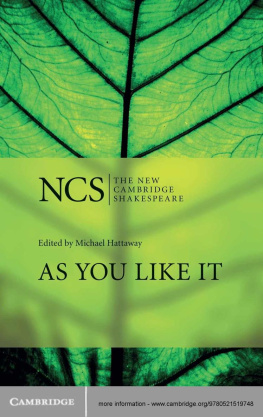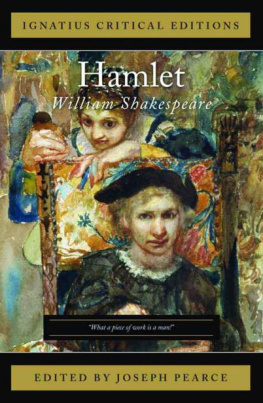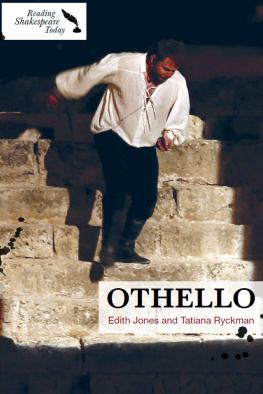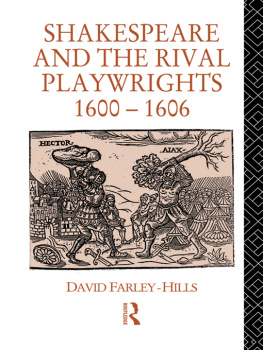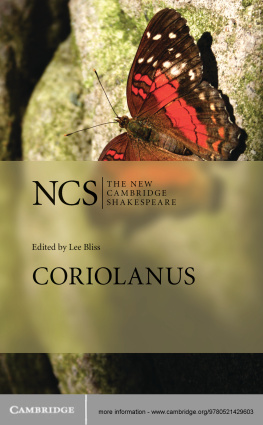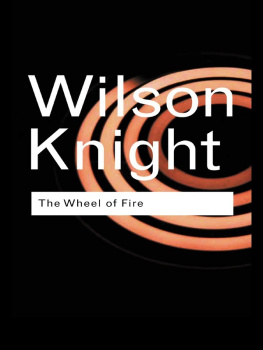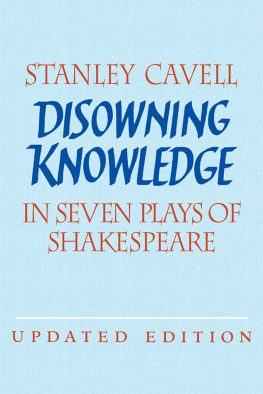William Shakespeare - Four Tragedies: Hamlet, Othello, King Lear, Macbeth
Here you can read online William Shakespeare - Four Tragedies: Hamlet, Othello, King Lear, Macbeth full text of the book (entire story) in english for free. Download pdf and epub, get meaning, cover and reviews about this ebook. year: 2011, publisher: Bantam Classic, genre: Art. Description of the work, (preface) as well as reviews are available. Best literature library LitArk.com created for fans of good reading and offers a wide selection of genres:
Romance novel
Science fiction
Adventure
Detective
Science
History
Home and family
Prose
Art
Politics
Computer
Non-fiction
Religion
Business
Children
Humor
Choose a favorite category and find really read worthwhile books. Enjoy immersion in the world of imagination, feel the emotions of the characters or learn something new for yourself, make an fascinating discovery.
- Book:Four Tragedies: Hamlet, Othello, King Lear, Macbeth
- Author:
- Publisher:Bantam Classic
- Genre:
- Year:2011
- Rating:3 / 5
- Favourites:Add to favourites
- Your mark:
- 60
- 1
- 2
- 3
- 4
- 5
Four Tragedies: Hamlet, Othello, King Lear, Macbeth: summary, description and annotation
We offer to read an annotation, description, summary or preface (depends on what the author of the book "Four Tragedies: Hamlet, Othello, King Lear, Macbeth" wrote himself). If you haven't found the necessary information about the book — write in the comments, we will try to find it.
William Shakespeare: author's other books
Who wrote Four Tragedies: Hamlet, Othello, King Lear, Macbeth? Find out the surname, the name of the author of the book and a list of all author's works by series.
Four Tragedies: Hamlet, Othello, King Lear, Macbeth — read online for free the complete book (whole text) full work
Below is the text of the book, divided by pages. System saving the place of the last page read, allows you to conveniently read the book "Four Tragedies: Hamlet, Othello, King Lear, Macbeth" online for free, without having to search again every time where you left off. Put a bookmark, and you can go to the page where you finished reading at any time.
Font size:
Interval:
Bookmark:
 William Shakespeare was born in Stratford-upon-Avon in April 1564, and his birth is traditionally celebrated on April 23. The facts of his life, known from surviving documents, are sparse. He was one of eight children born to John Shakespeare, a merchant of some standing in his community. William probably went to the Kings New School in Stratford, but he had no university education. In November 1582, at the age of eighteen, he married Anne Hathaway, eight years his senior, who was pregnant with their first child, Susanna. She was born on May 26, 1583.
William Shakespeare was born in Stratford-upon-Avon in April 1564, and his birth is traditionally celebrated on April 23. The facts of his life, known from surviving documents, are sparse. He was one of eight children born to John Shakespeare, a merchant of some standing in his community. William probably went to the Kings New School in Stratford, but he had no university education. In November 1582, at the age of eighteen, he married Anne Hathaway, eight years his senior, who was pregnant with their first child, Susanna. She was born on May 26, 1583.
Twins, a boy, Hamnet (who would die at age eleven), and a girl, Judith, were born in 1585. By 1592 Shakespeare had gone to London, working as an actor and already known as a playwright. A rival dramatist, Robert Greene, referred to him as an upstart crow, beautified with our feathers. Shakespeare became a principal shareholder and playwright of the successful acting troupe, the Lord Chamberlains Men (later, under James I, called the Kings Men). In 1599 the Lord Chamberlains Men built and occupied the Globe Theatre in Southwark near the Thames River. Here many of Shakespeares plays were performed by the most famous actors of his time, including Richard Burbage, Will Kempe, and Robert Armin.
In addition to his 37 plays, Shakespeare had a hand in others, including Sir Thomas More and The Two Noble Kinsmen, and he wrote poems, including Venus and Adonis and The Rape of Lucrece. His 154 sonnets were published, probably without his authorization, in 1609. In 1611 or 1612 he gave up his lodgings in London and devoted more and more of his time to retirement in Stratford, though he continued writing such plays as The Tempest and Henry VIII until about 1613. He died on April 23, 1616, and was buried in Holy Trinity Church, Stratford. No collected edition of his plays was published during his lifetime, but in 1623 two members of his acting company, John Heminges and Henry Condell, put together the great collection now called the First Folio. eISBN: 978-0-307-42060-2 v3.1

TRAGEDIES

 Hamlet, Othello, King Lear, and Macbeth form a cohesive group in Shakespeares dramatic production. eISBN: 978-0-307-42060-2 v3.1
Hamlet, Othello, King Lear, and Macbeth form a cohesive group in Shakespeares dramatic production. eISBN: 978-0-307-42060-2 v3.1 
TRAGEDIES

 Hamlet, Othello, King Lear, and Macbeth form a cohesive group in Shakespeares dramatic production.
Hamlet, Othello, King Lear, and Macbeth form a cohesive group in Shakespeares dramatic production. They rank among the greatest tragedies he wroteindeed, that anyone ever wrote. Shakespeare produced them all in one period of his life, in a steady outpouring of tragic eloquence: Hamlet (by 1601), Othello (c. 16031604), King Lear (c. 1605), and Macbeth (16061607). He also wrote several dark comedies and problematic playsAlls Well That Ends Well, Measure for Measure, and Troilus and Cressidaduring the early years of this tragic period; they too are touched by a dark view of humanitys carnality and penchant for self-destruction. 15891591), Julius Caesar (1599), Timon of Athens (c. 16051608), Antony and Cleopatra (16061607), and Coriolanus (c. 1608), plays where Shakespeare, in other periods, turned to the ancient classical world for tragic material. 1608), plays where Shakespeare, in other periods, turned to the ancient classical world for tragic material.
The four tragedies in this volume are linked in a number of thematic ways. They all confront the nature of evil, as Shakespeares classical tragedies generally do not. Human failure is often measured in terms of good and evil. Claudius, in Hamlet, confesses in soliloquy to being guilty of the primal eldest curse (3.3.37) of having killed his own brother, thus reenacting the crime of Cain against Abel (see Genesis 4) that began the history of human violence on earth. Othello, realizing too late what he has done in killing his innocent wife, begs divine punishment: Whip me, ye devils, / From the possession of this heavenly sight! / Blow me about in winds! Roast me in sulfur! / Wash me in steepdown gulfs of liquid fire! (5.2.2869). The appalling evil manifested in King Lear by Goneril, Regan, Edmund, and others obliges Albany to question what will become of the human race if some restraint is not found: If that the heavens do not their visible spirits / Send quickly down to tame these vile offenses, / It will come, / Humanity must perforce prey on itself, / Like monsters of the deep (4.2.4751).
Macbeth is painfully aware that every decent consideration argues against the murder he is contemplating: this Duncan / Hath borne his faculties so meek, hath been / So clear in his great office, that his virtues / Will plead like angels, trumpet-tongued, against / The deep damnation of his taking-off (1.7.1620). These four plays center on crimes that strike at everything civilization holds most dear: murder of a brother, usurpation of a crown through murder, murder to obtain ones brothers wife, murder of a wife, abandonment of a parent to lifethreatening circumstances, adultery, conspiracy against a brother and a father, murder of ones king and ones guest. Notably, these crimes are all contained within the family, which is one reason, perhaps, that we find Shakespeares great tragedies so moving; they embody with such fearful clarity the struggles and rivalries within the family group. Hamlet must avenge his fathers murder by killing his own uncle, and in doing so he must also confront the contrast between these two parental figures, his father and his stepfather. Look here upon this picture, and on this, he urges his mother, as he shows her likenesses of the two. Could you on this fair mountain leave to feed / And batten on this moor? (3.4.5468).
It is as though Hamlets father and Claudius personify what is best and worst in humanity, Hyperion to a satyr (1.2.140). Iagos rivalry with Cassio for Othellos favor, and his own hostility toward Othello, suggest a kind of family in which destructive anger has gone amok. King Lear structures its two parallel plots on two family groupings, in both of which the innocent child is betrayed by siblings and rejected by credulous and willfully unknowing parents. Macbeths crime is domestic, not only in that it is shared with such terrible intimacy by husband and wife, but in that the victim is a parental figure. Had he not resembled / My father as he slept, I had done t, says Lady Macbeth (2.2.1213). Part of what is so frightening about Shakespeares tragic vision is that it locates hatred so centrally in the struggle to survive within the family.
Evil is frightening in these plays also because it operates so insidiously, makes such canny use of false appearances, knows how to tempt human weakness at just the right time, and triumphs with such lamentable ease and frequency. Hamlet is obsessed with the human and especially feminine susceptibility demonstrated by his mother and by Ophelia. Frailty, thy name is woman! he exclaims in soliloquy (1.2.146). Yet men are no better, as Hamlet knows from the example of Claudius or even of himself. We are arrant knaves all; believe none of us, he urges Ophelia (3.1.130). Use every man after his desert, and who shall scape whipping? he observes to Polonius (2.2.52930).
Next pageFont size:
Interval:
Bookmark:
Similar books «Four Tragedies: Hamlet, Othello, King Lear, Macbeth»
Look at similar books to Four Tragedies: Hamlet, Othello, King Lear, Macbeth. We have selected literature similar in name and meaning in the hope of providing readers with more options to find new, interesting, not yet read works.
Discussion, reviews of the book Four Tragedies: Hamlet, Othello, King Lear, Macbeth and just readers' own opinions. Leave your comments, write what you think about the work, its meaning or the main characters. Specify what exactly you liked and what you didn't like, and why you think so.

